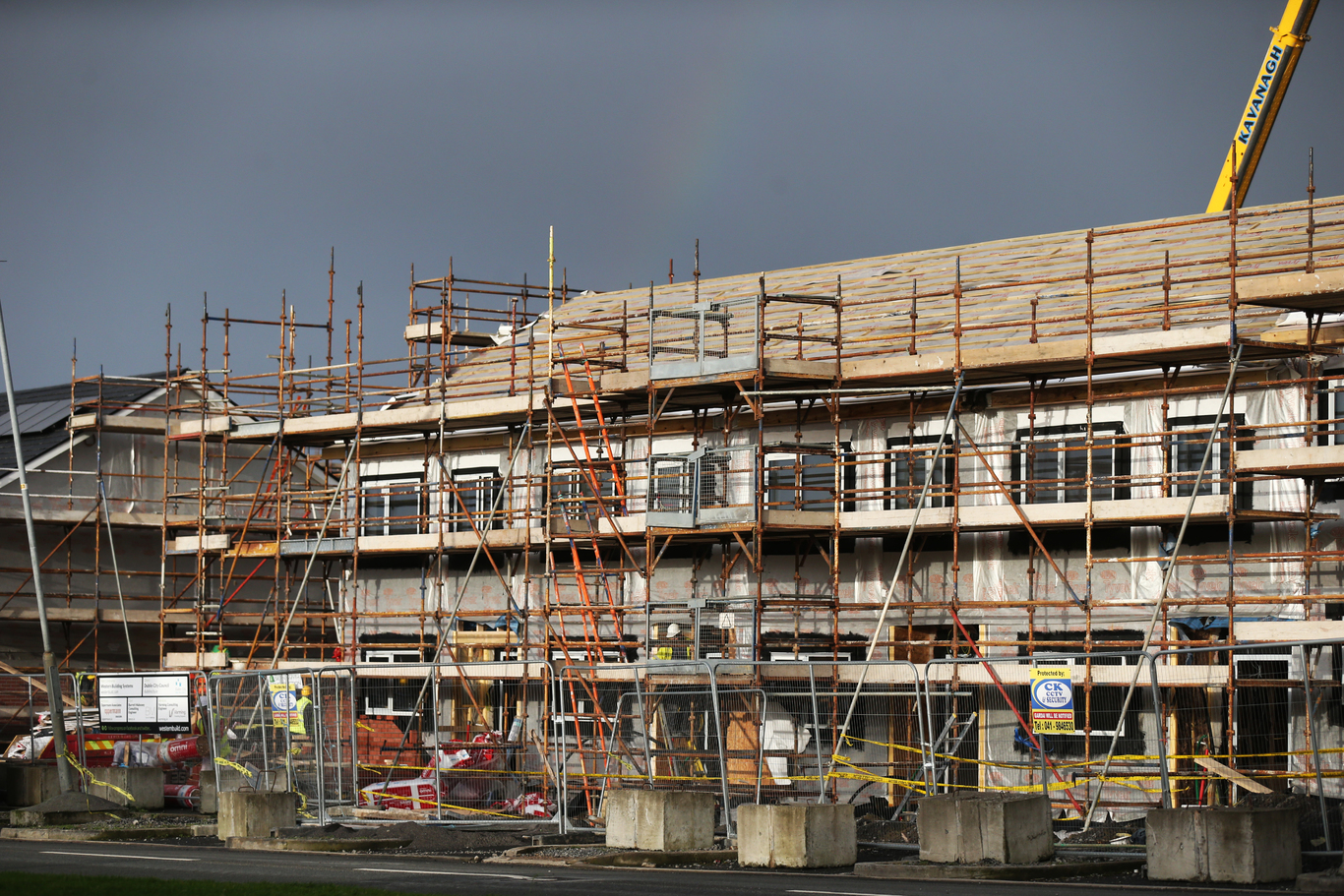As the housing shortage worsens, Irish developers have started picking up the pace
Housing completions rose by about one-fifth in the second quarter of the year.
IRELAND’S DEVELOPERS HAVE ramped up their pace of building, with the number of homes completed rising strongly in the second quarter of the year.
According to a report published by Property Industry Ireland (PPI), a group affiliated to business lobby Ibec, housing completions rose by almost one-fifth during the period.
The group said that just under 3,500 housing units were completed in the three-month period to the end of June, a 17% year-on-year increase. Dublin accounted for 28% of completions countrywide, the highest of any single region.
The number of units granted planning permission dropped slightly, by 4% to about 3,100.
More development
However, development began on almost 3,065 housing units during the period, up from just over 2,000 in the first three months of the year and 1,742 during the last quarter of 2015.
As expected, from a regional perspective, Dublin continued to experience the highest level of growth, accounting for slightly over a quarter of commencements nationwide.
This was followed closely by the mid-east region, comprised of Kildare, Meath and Wicklow, where commencements rose to 790 during the quarter.
PPI said that this “may be a reflection of construction activity spilling over to commuter-belt counties due to viability issues in Dublin”.
The group now expects that 14,000 housing units will be finished by the end of the year – 3,000 more than had been predicted at the end of the last quarter.
Supply and demand
However, this is still roughly half of Ireland’s expected housing demand. Think-tank the ESRI has said that Ireland needs around 25,000 built each year over the medium term to keep pace with demand.
An analysis of the Property Price Register found that the national average transaction price for residential property was €236,363 during the second quarter, which represented a year-on-year increase of 10%.
This was well below the average transaction price of €388,320 recorded in Dublin, where prices rose by about a fifth. Stripping out Dublin the national average transaction price fell to €168,374.
PPI chairman Tom Phillips said that indicators in the housing sector “look positive, with housing completions finally materialising, and many more houses and apartment developments moving slowly through the planning system”.
However, he added: “The supply of new housing is only at half the level needed to meet demand and keep prices and rents under control.”
Phillips said that the property industry is now looking to next month’s Budget to “support the delivery of high quality affordable homes through cuts to VAT, development levies and other taxes and charges on new housing.”
The report was prepared for PPI by a company called DKM Economic Consultants. DKM director Annette Hughes said that activity in the property market “continues to ramp up as housing supply edges upwards”.
However she added: “This is not to underestimate the challenges we face in a supply constrained market where residential rents rose by 4% in the second quarter of the year.






